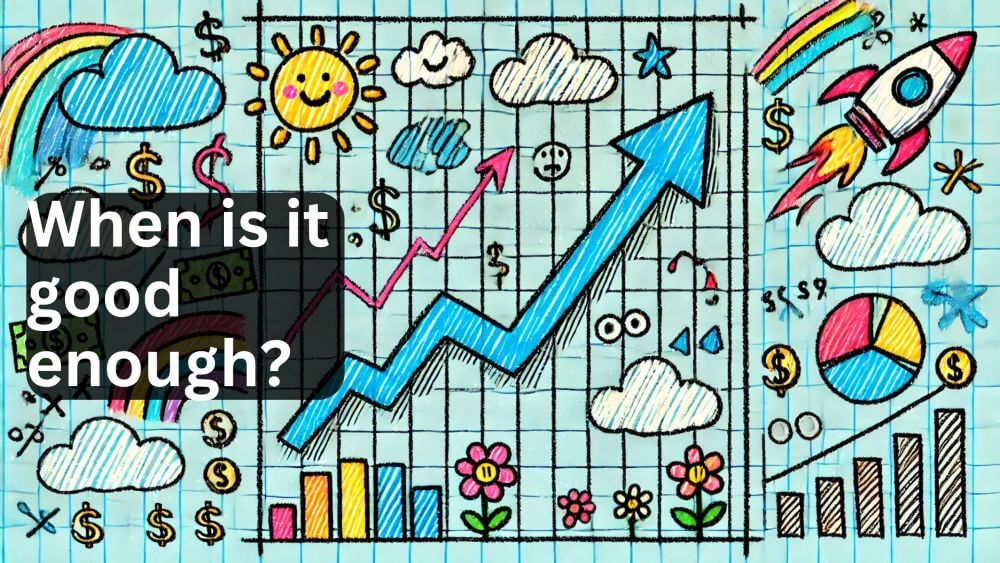One of the things I enjoy most is talking with people about their investment philosophy, where their ideas come from, and their outlook on the economy.
Everyone has an approach to money. Some start thinking about it later in life, or some believe that they will be able to live out of government programs like Social Securities or government pension plans. Others follow the advice of their bank advisors and buy overpriced financial products simply because they don’t know any better, others watch YouTube videos, some read the investment section in newspapers. And some, like me, think about it obsessively all the time.
We all have a money philosophy. Whether we realize it or not, we all hold beliefs and habits about money. Sometimes these beliefs are handed down from our families, and sometimes we learn them through our social circles.
If someone grew up during a recession, or a financial crisis, that experience might shape their financial thinking for the rest of their life. If another person grew up in a period of abundance and prosperity, say from 1982 to 2000* that person will have a totally different set of beliefs.
There is also the temperament of the person. Some believe they can time the market. I often hear comments like: “The market is overvalued, I will wait until the market drops a little before investing.” Others are constantly worried about the next big crash because that’s the news the media feeds us every day.
Of course, every day individuals don’t spend a lot of time thinking about economic statistics, but everyone experiences the ups and downs of the economy in their day-to-day life, which leads to all of us having an opinion about the economy.
The economy is difficult to predict. At times, the opinions of those who rarely think in economic terms can be as valid as those of experts sitting in ivory towers analyzing data.
Another thing that might be confusing to new investors is that the stock market and the economy don’t always move hand in hand. The economy could be doing really bad and the stock market could be doing great. Think of the Covid years, for example.
The regular panhandler on the street corner might have as much insight into the direction of the economy, based on the amount of change he receives daily as the economist with a master degree sitting at his office in some high rise building.
The thing about the economy—and life in general—is that it always finds a way to surprise us.
I often hear phrases like these:
- “I’ll invest when there’s more certainty in the market.”
- “I heard from many experts, including Bill Gates, that a recession is coming.” (My friend Elijah).
The reality is, there is never certainty in the market—only the illusion of certainty. One day we’re living our lives, and all of a sudden, BOOM, something crazy happens:
- The Islamic terrorist that destroyed the Twin towers on 9/11
- The collapse of Lehman Brothers in 2008
- COVID-19 bringing the global economy to its knees
- Russia invading Ukraine
- The terrorist group Hamas attacked and killed hundreds of innocent Israeli civilians.
All these events caught expert economists and financial analysts by surprise. They were no better at forecasting the economy and the market than the guy next door.
So what do you do when the future is uncertain?
You either do nothing, or you adopt a strategy that’s good enough.
- For most people, spending less than they earn is good enough.
- For others, having a savings account they contribute to regularly is good enough.
- For me, investing in broad-based index funds like the S&P 500 is good enough.
You don’t have to know the future or read the Federal Reserve Board’s minutes to adopt a long-term strategy that’s good enough for you.
Somehow, we have to remain optimistic that the future will be better than the past. We will continue solving problems, making technological advances, and improving living standards. We have advanced in one way or another for hundreds of years and we will continue to advance even more.
In our financial lives, eventually, we reach a point where we can say to ourselves, “That’s good enough.” Any further effort to optimize or to understand the economy may be counterproductive.
Once we adopt a solution that’s good enough for us, we can focus on other areas of our lives. I can focus on writing more articles, my friend Cheryl can focus on teaching English classes, and my friend Moise can focus on running his business.
When we say “that’s good enough,” we gain freedom and peace of mind.
*(Over this 18-year period, the S&P 500 delivered a cumulative total return of approximately 1,350%, including reinvested dividends. This corresponds to an average annual return of about 16.8%.)
Other personal finance blog posts
